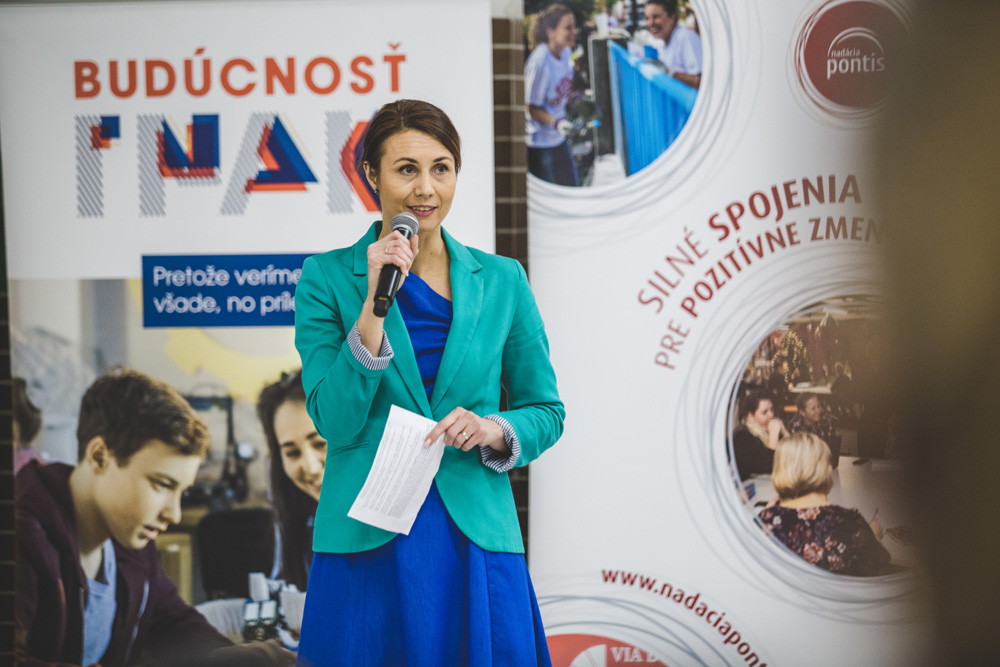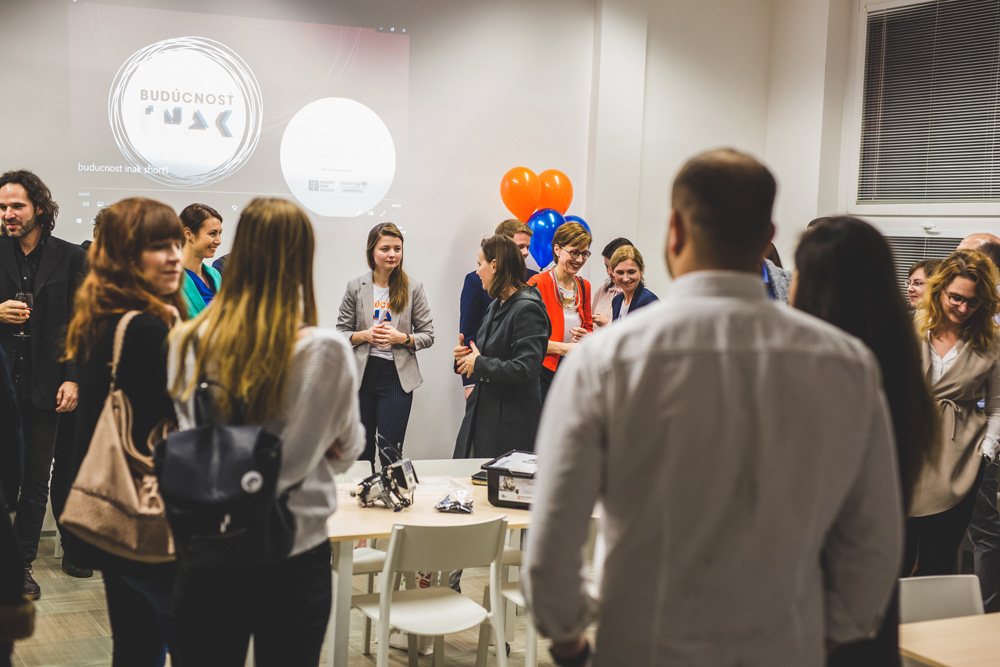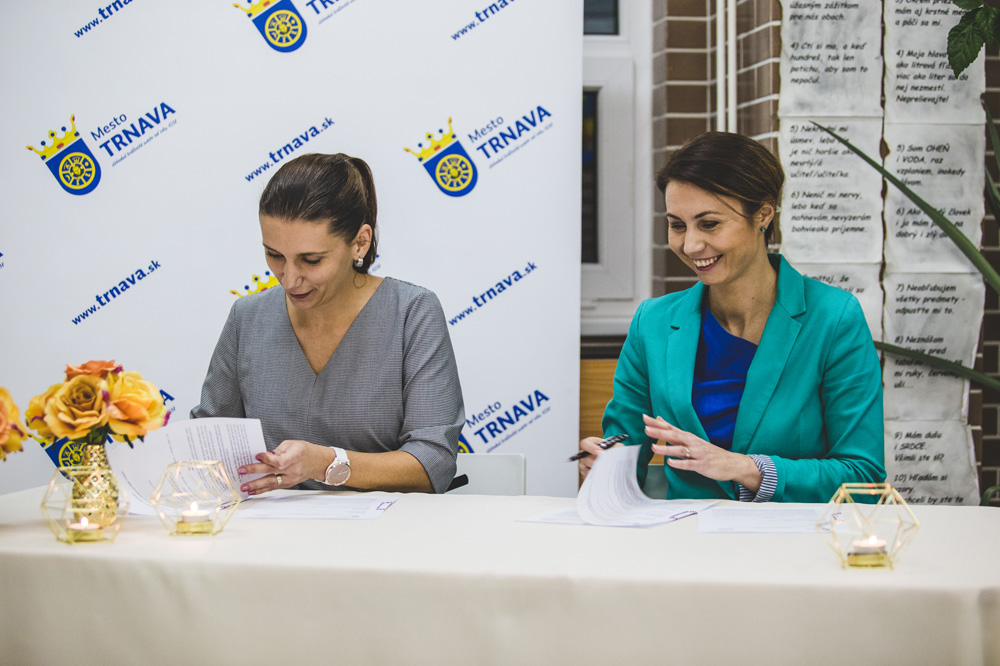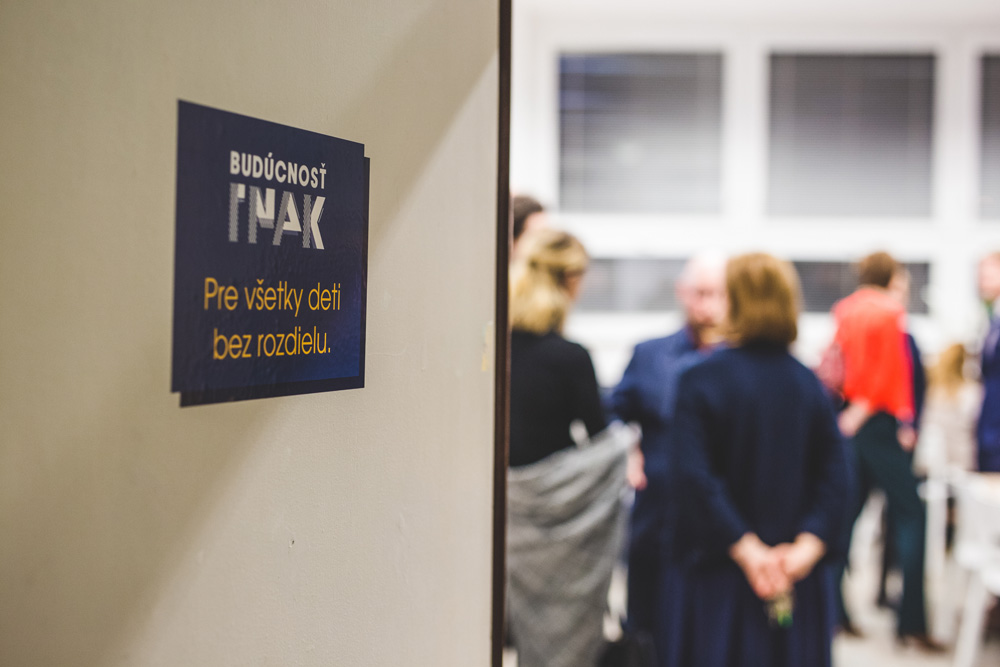An Extra-curricular Innovation Centre for Primary School Pupils Was Established in Trnava. They Will Look for Solutions to Community Problems.
Yesterday, on the 26th November 2019, the Pontis Foundation in cooperation with the Town of Trnava presented a unique extra-curricular centre Future DIFFERENTLY.
In its first year, it will open its doors to 25 children who will experience a world of unknown innovation and technology which they would not be able to access otherwise. The aim is that the centre helps pupils develop different skills, which they will acquire by working on their own projects. Top personalities of Slovak business will accompany the children throughout the process.
The educational programme for children from 11 to 15 years of age is provided by the Pontis Foundation in cooperation with the Town of Trnava. The innovation centre was established in the premises of the Primary School and Kindergarten in the Maxim Gorky Street in Trnava.

The Future DIFFERENTLY programme will provide its young participants with a comfortable background and seamless access to IT technologies. “In this three-year programme, children under the supervision of inspiring mentors from well-known Slovak companies and institutions will work on their own projects, with an emphasis on supporting their communities and the region,” explains Martina Kolesárová, Executive Director of the Pontis Foundation. “The entire programme is conducted playfully and informally. Children will gain a great amount of useful knowledge in a way that will capture their attention. They will be close to the technologies and innovations of the future, such as virtual medicine and self-driving cars,” Martina explains further.
The uniqueness of the Future DIFFERENTLY programme lies in promoting young people’s cooperation without discrimination. Its essence is to strengthen digital skills, creativity and entrepreneurship in children and motivate them to further self-development and improve their school results. “We are convinced that this can help them in the transition to secondary schools and thus allow them access to education for increased employability in the job market,” explains M. Kolesárová.

The centre will be open 4 times a week, always after school until evening. Children will receive refreshments and constant support from the centre coordinator. Over three years, they will attend dozens of workshops by Slovak business leaders, such as Slovak astrobiologist Michaela Musilová, who leads simulated missions to the Moon and Mars and Lucia Šicková, a co-founder of the world-renowned Slovak company Pixel Federation. The extracurricular activities will also include visits to Slovak companies and meetings with interesting personalities. “Further, the programme links the public sector, the civic sector and the business environment in an innovative way,” adds M. Kolesárová.

At the initial stage, the Pontis Foundation contacted the Town of Trnava which became one of the key partners of the newly established centre. The town management took part in finding and providing suitable premises. A memorandum was signed at the ceremonious opening between the Town of Trnava and the Pontis Foundation. The memorandum implies cooperation of the self-government on the promotion and communication of activities and the involvement of the Office’s employees in the operation of the innovation centre. “This unique programme captured our interest at the very beginning and we are very pleased that Trnava was the first choice in the selection of the pilot centre. The programme will give children opportunities which they would not be able to access otherwise. It can be a stepping stone to new opportunities and a successful future,” says Eva Nemčovská, Vice-Mayor of Trnava.

The main partner of the programme is the Endowment Fund Telekom at the Pontis Foundation. At the same time, the programme is part of the European project Social(i)Makers, which aims to improve the capacity of social innovation. The Social(i)Makers project is implemented under the Interreg Central Europe programme supported by the European Union through the European Regional Development Fund.
More information is available at www.buducnostinak.sk.






